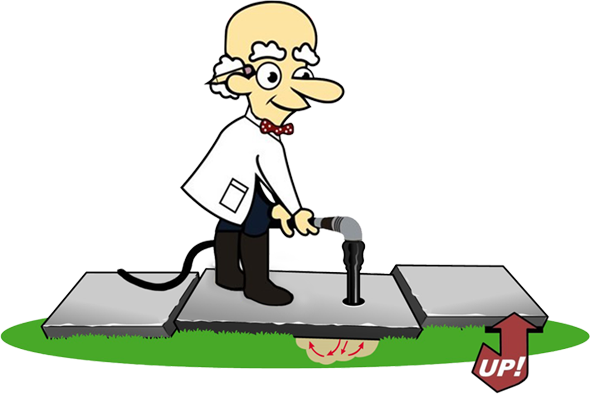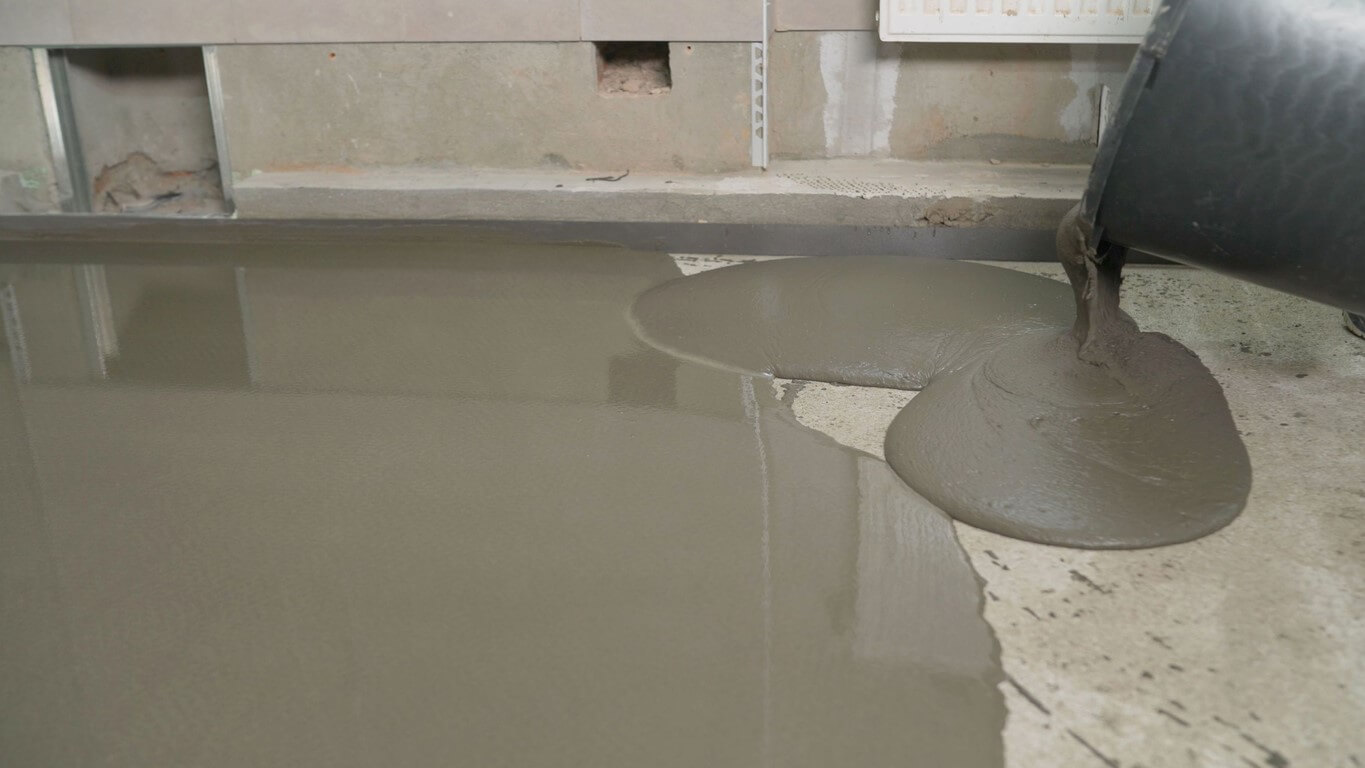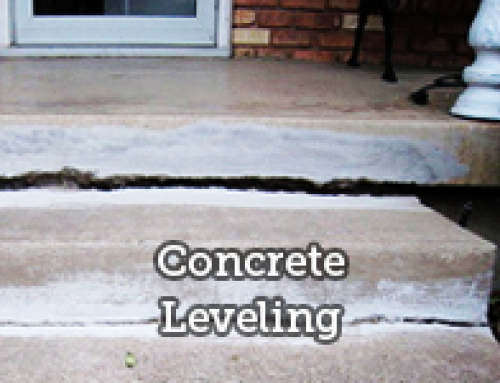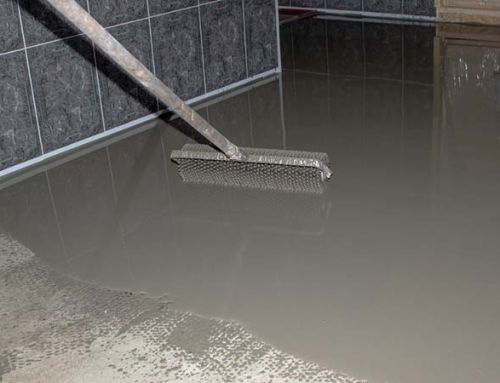IN THIS ARTICLE
- Self-leveling concrete is a great alternative to achieve a level concrete floor surface and can save time and money. These floor leveling compounds are useful before applying finished floor coverings such as vinyl plank flooring, hardwood floors, and tile.
- Basement floors are challenging to install due to limited access and often have uneven concrete with high areas or dips.
- Whether you plan to use self-leveling cement on your basement floor, garage floor, or the concrete slab in your home, this article will help you determine if it’s a DIY project or if you need to search for a local concrete leveling contractor for your concrete repair.
- The most crucial step before applying self-leveling underlayment cement is to determine the cause of the uneven floor surface. There are two common causes of uneven concrete floors: improper installation and a concrete floor that has settled. Settlement can occur if the subsoils are not compacted correctly.
- Before applying self-leveling cement, a settled concrete floor should be inspected for voids, filled, and supported with a concrete leveling method. The most common process is mudjacking, which uses a cement grout slurry mixture. Another method to fill voids with concrete lifting foam is called poly leveling. If concrete floor settlement is not addressed before applying self-leveling concrete material, further concrete settlement and failure are likely to occur.
- If you have any questions about self-leveling concrete, here are some commonly asked ones:
- – What is self-leveling concrete? – How does self-leveling concrete work? – Where is self-leveling concrete used? – What are the advantages of using self-leveling concrete? – Can self-leveling concrete be used outdoors? – How do you prepare a surface for self-leveling concrete? – Can self-leveling concrete be stained or colored? – How long does self-leveling concrete take to dry and cure? – Can self-leveling concrete be used for radiant heated floor heating systems? – Are there any limitations or precautions when using self-leveling concrete?
- Always consult the manufacturer’s guidelines for the best results, as the specific instructions and recommendations for using self-leveling concrete may vary depending on the product and brand.
- If you decide to buy self-leveling cement products and do it yourself, remember to follow the manufacturer’s instructions and ensure proper surface preparation to avoid any issues
- Self-leveling concrete offers a convenient solution to achieving a level concrete floor surface, saving both time and money. These leveling compounds are typically applied before laying finished floor coverings like vinyl plank flooring, hardwood floors, or tile on top of existing concrete floors. Installing self-leveling cement on a basement floor, garage floor, or a concrete slab in your home requires a proper assessment of the surface to determine whether it is a DIY project or if a local concrete leveling contractor needs to be hired for concrete repair services. The most important step before using self-leveling underlayment cement is to identify the cause of the uneven floor surface. Two common causes of uneven concrete floors are improper installation or concrete floor settlement. Settlement occurs when soil is not compacted properly before installing the concrete floor and can result in both high and low spots. Settlement should be addressed before applying self-leveling cement to avoid further concrete settlement and failure. Two methods of filling voids and supporting the concrete floor are mudjacking, which uses a cement grout slurry mixture, and poly leveling, which uses concrete lifting foam. Here are some frequently asked questions about self-leveling concrete: – What is self-leveling concrete? – How does self-leveling concrete work? – Where is self-leveling concrete used? – What are the advantages of using self-leveling concrete? – Can self-leveling concrete be used outdoors? – How do you prepare a surface for self-leveling concrete? – Can self-leveling concrete be stained or colored? – How long does self-leveling concrete take to dry and cure? – Can self-leveling concrete be used for radiant heated floor heating systems? – Are there any limitations or precautions when using self-leveling concrete? It is vital to follow the manufacturer’s instructions, ensure proper surface preparation, and use the correct thickness to avoid cracking when using self-leveling concrete. Additionally, be aware of the product’s pot life, which is the working time you have before the product begins to set. Remember that specific guidance may vary depending on the product and brand, so always consult the manufacturer’s guidelines for optimal results. If you intend to use self-leveling cement products, keep in mind that it is necessary to do a proper assessment and consult with professionals if necessary.
- If you are looking to do a search for concrete leveling contractors near me and live in the Southern New Jersey area, or local NJ towns we service listed below, contact Concrete Chiropractor for a professional evaluation. We are “The Trusted Leading Experts in Concrete Raising Since 2000” ®.
- Garage Floor Raising and Coating: The Ultimate Guide - June 4, 2024
- Mudjacking Cost: 5 Factors That Affect It - April 10, 2024
- What is The Average Cost of Concrete Leveling in Belle Mead, NJ? - April 4, 2024





